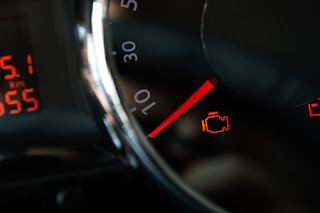There are typically two types of warranties on a vehicle when purchasing, a bumper-to-bumper and a powertrain warranty. The powertrain on any vehicle is considered any car parts that allow the frame pieces to move or function, so things like the engine, transmission, and drivetrain are covered under this type of warranty. A bumper-to-bumper warranty is for essentially the rest of the vehicle, including tires, provided they have problems before they wear out. Each warranty is completely unique to the manufacturer, but more often powertrain warranties cover a longer duration than any bumper-to-bumper warranty would. Some manufacturers like Dodge, Chrysler or Jeep offer limited lifetime warranties on powertrains, while most others cover between 60,000-100,000 miles (or 4-6 years) while bumper-to-bumper covers 30,000-50,000 miles (generally between 3-5 years).
- Everyday use typically won’t void your warranty, but the following could:
- Off-roading, or racing a vehicle putting it through “extreme” usage
- “Acts of God” otherwise known as damage caused by floods or earthquakes
- Disregard for routine maintenance, things like oil changes, tire rotations, air filter replacement… you get the idea.
- Any modification to the vehicle, especially the odometer
Modifying your vehicle can cover a broad spectrum of things, and in some cases that includes installing aftermarket parts. However, due to the Magnuson-Moss Warranty Act of 1975, coverage cannot be denied unless the dealership can prove that the aftermarket part itself caused the damage. They cannot deny you coverage for simply using an aftermarket or recycled part, but if that part was installed incorrectly or was defective, and they can prove that it caused damage to other parts on your vehicle, they can deny coverage and require payment for repairs.
Long story short, being in a car accident will not void the warranty on your vehicle, unless your insurance company deems it a total loss. If you are in an accident that requires a salvage stamp on your title, the warranties on your vehicle will no longer be applicable. If you’re maintaining your vehicle, putting it through routine inspection and maintenance, your warranty shouldn’t be voided. Like with anything, make sure you’re reading the fine print and looking into all the aspects of your warranty before you purchase, and if possible avoid installing expensive suspension or lift kits unless you’re willing to risk your warranty.
Long story short, being in a car accident will not void the warranty on your vehicle, unless your insurance company deems it a total loss. If you are in an accident that requires a salvage stamp on your title, the warranties on your vehicle will no longer be applicable. If you’re maintaining your vehicle, putting it through routine inspection and maintenance, your warranty shouldn’t be voided. Like with anything, make sure you’re reading the fine print and looking into all the aspects of your warranty before you purchase, and if possible avoid installing expensive suspension or lift kits unless you’re willing to risk your warranty.
At Oakdale Collision we do our best to return your vehicle to pre-accident condition. If you have any concerns while your vehicle is in the shop, we’re just a short phone call away!




